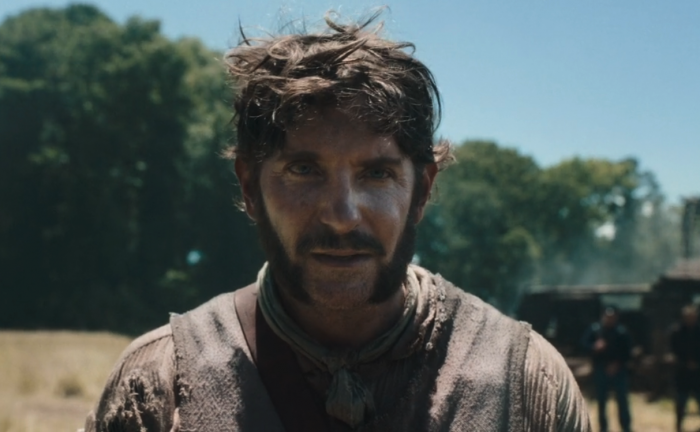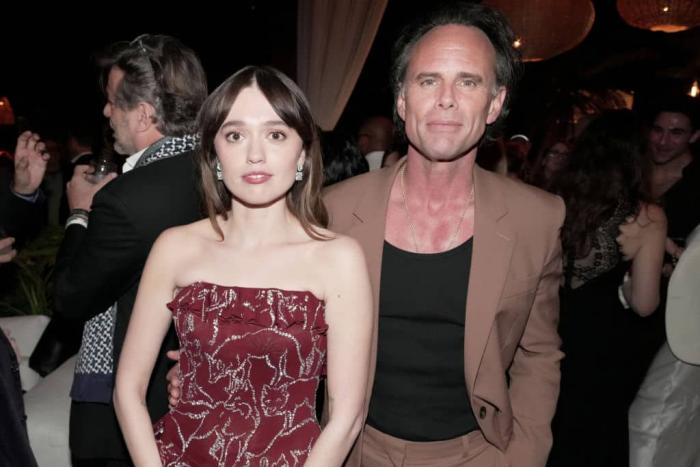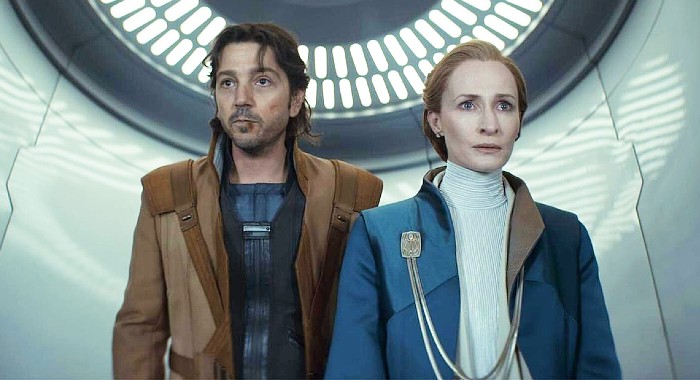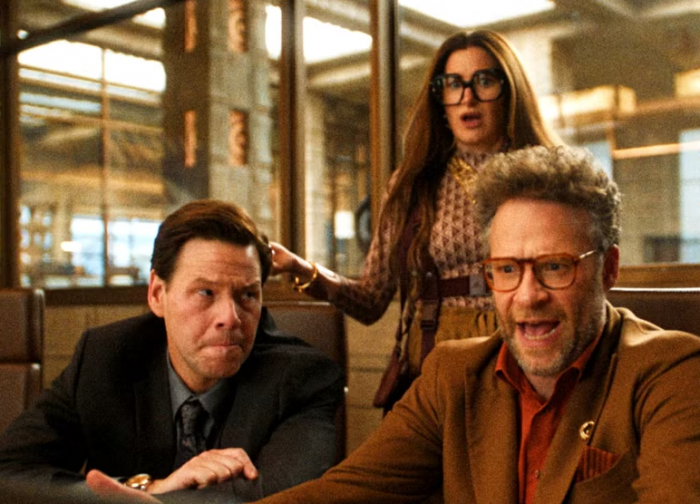
Review: Hulu's 'The Great' Offers A Binge-able And Biting Historical Comedy You Won't Want To Miss
By Kristy Puchko | TV | May 16, 2020

If all you know about Catherine The Great is that she supposedly f*cked a horse, The Great is for you. This funny and fascinating Hulu series explores the early life of the 18th-century Russian empress, following her through royal intrigue, sexual scandals, pernicious plague, and a could-be coup to overthrow her rotten husband, Peter III. But don’t be fooled into thinking this seemingly dry subject matter will deliver a bland drama. Created by Academy Award-nominated screenwriter of The Favourite Tony McNamara, The Great offers “occasionally” accurate information amid scads of playful reinventions, sex jokes, and scathing satire. In short, it’s one hell of a ride.
Elle Fanning stars as a young and idealistic Catherine, who is inspired by the Enlightenment movement, packed more books than gowns for her new life, and envisions a great romance with the betrothed she’s never met. However, she soon learns Peter is not the dashing dreamboat she imagined. He’s coarse, calling his military leader “fat f*ck” and manhandling Catherine’s breasts in public. He’s childish, throwing tantrums and slinging insults like a grade school bully. He’s wildly arrogant, believing he knows better about every topic, despite a complete lack of education on it or interest in it. In short, he’s a dangerous dolt who is bad for the nation. Her aspirations for a perfect partnership crushed, Catherine begins to plot for a better future, one without her idiot husband.
Fans of The Favourite will be quick to note similarities in The Great. Both center on bad leaders whose lovers seek to manipulate for the good of the nation. Both indulge in the luxurious fantasy, sexual decadence, and deadly intrigue of royal courts and their power struggles. Both feature Nicholas Hoult playing a posh, powerful, and violent cad with a dirty mouth and an undeniable charm. However, there’s a softness to The Great that sets it apart from Yorgos Lanthimos’s blistering film.
While the series’ world is rich with affluent buffoons in power, Catherine’s aspirations are its driving force. She dreams of a more egalitarian Russia, a more progressive nation where the serfs will have the same rights to healthcare as the wealthy, where women are encouraged to education the same as men, and where the ideals of Enlightenment would push away the casual violence of Peter’s court, where heads are smashed as cavalierly as crystal glasses. Huzzah!
As someone unfamiliar with a lot of the real Catherine’s story, I was struck by how much of The Great is true. However, McNamara’s show is far less concerned with history lessons than he is urging audiences to reconsider how we look back on history. It’s so easy to regard those who came long before as stodgy figures best captured in court-commissioned oil portraits. Like Dickinson, The Great reminds us that these titular women of history had passions, aspirations, and embarrassing encounters. They were human. And through these raucous tales of love, ambition, and heartbreak, their humanity is reclaimed, giving renewed vigor to their legacies.
McNamara takes winking liberties with history, inventing some characters completely and having his court be the innovators behind hangover cures, bowling, and the Moscow Mule. Aside from fun, these bits serve as a subtle reminder to interrogate history past such silly stories. Essentially, The Great slyly invites us to look past the horse-riding rumors to discover why they existed in the first place.
Beyond all these delicious thought-provoking thrills, The Great is also delectable entertaining. McNamara’s scripts crackle with a tantalizing lustiness, smirking humor, yet a radiant optimism. He’s gathered a superb (and inclusive) ensemble that boasts Phoebe Fox, Adam Godley, Bayo Gbadamosi, Sebastian De Souza, Charity Wakefield, Sacha Dhawan, Danusia Samal, Gwilym Lee, and Belinda Bromilow. I’d like to sing their praises individually, as each brings an exhilarating element to the series. But to save you from spoilers, let’s rest at they sinks their teeth into his rat-a-tat banter and throws themselves full-bodied into sexual gags and violent slapstick that’s joltingly guffaw-inducing. They are a true and riotously funny ensemble, giving unrepentant verve to this tale.
Fanning shines as the empress, who is enchanting in her earnestness and riveting in her darker determinations. Having seen her grow up onscreen, this role feels smartly chosen as it follows a naive girl into hardwon womanhood. Fanning shoulders the series through moments of madcap comedy and tearful pathos with an astounding grace. However, it is Hoult who steals the show.
Once the baby-faced sweetheart of About A Boy, Hoult has grown into a titillating phase of his career where he’s embraced the bad boy. In The Favourite, he was a merciless snob, who relished a powdered wig as much as a well-spat curse word. In The True Adventures of the Kelly Gang, he was a cajoling creep, who loved kinks and kicking around the poor. Here, he plays Peter the Not-So-Great with a chaotic charisma that is addictive. He delivers McNamara’s dialogue at a break-neck speed, which reflects the outrageous arrogance of this leader who never stops to think before he speaks. Over the course of the series, we’ll witness Peter commit all kinds of abuses and outright horrors upon his wife and his court. And yet, I never tired of his screentime because Hoult is mesmerizing in his manic and menace.
As Peter, he unleashes tireless energy of a ’90s boyband member or a Youtube prankster. His limbs go loose and wild as he chases an elderly adviser in a mocking jape or chastises Catherine for having “a peasant’s morality.” Just like that, he becomes every frat bro pushing at a party. He starkly pronounces things like, “I have a gentle heart and a massive cock,” as if they are incontrovertible facts, recognized by all. He is a trainwreck of a leader, and yet I could not—and did not want to—look away. Part of it is the extraordinary comedic timing that Hoult offers, spinning from jovial to sulking, violent to blase. He’s a tornado of emotions, unpredictable and so exciting. Yet within all this rancid bravado and toxic masculinity, Hoult brings out the oozy humanity of Peter.
Along with Catherine’s growth, the season explores how the monster of a man was made, touching on Peter’s horrid upbringing and a deep-seated need for constant validation. His aunt (Belinda Bromilow, who is a stealth scene-stealer) warns him of the dangers of being a leader who needs to be loved. Within this, McNamara offers a sly commentary about the tyrant who demands devotion or offers death. Amid so much color, comedy, plot twists, provocative bits, and stunning screen presence, you might almost miss how The Great speaks to today. The joys of this show are entrancing and escapist for wonderful swaths. And then, there will be a comment, a cutting look, a subtle callback, and we’re struck by how this hilarious historical scene feels frightfully true to this very moment.
All 10 episodes of The Great Season 1 are now on Hulu.



